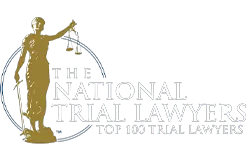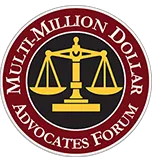As we gear up to celebrate Independence Day, the Fourth of July weekend often brings a surge of traffic on our roads and highways. While it’s a time for family gatherings, fireworks, and festivities, it’s important to be aware that the increased number of cars on the road can lead to a higher risk of accidents. In this blog post, we will explore the correlation between holiday travel and road accidents, and provide essential guidance on what to do if you find yourself involved in a car accident.
The Correlation between Holiday Travel and Road Accidents:


The Fourth of July is one of the busiest travel periods of the year, with millions of Americans hitting the roads to celebrate with friends and family. Unfortunately, this increased traffic can result in a higher number of accidents. Factors contributing to the heightened risk include:
a) Congested roads: The influx of vehicles can lead to traffic congestion, causing frustration and impatience among drivers, which can result in aggressive driving behaviors.
b) Impaired driving: Alcohol consumption is often associated with Independence Day celebrations, leading to an increased number of drivers under the influence. Impaired driving significantly raises the risk of accidents.
c) Distracted driving: With more people on the road, distractions can become more prevalent. Drivers may be tempted to use their mobile devices, adjust the radio, or engage in conversations, diverting their attention from the road.
Taking Precautions to Stay Safe:
While we cannot control the actions of others on the road, there are steps we can take to minimize the risks and ensure a safe journey. Here are some precautions to consider:
a) Plan ahead: Allow for extra travel time, considering potential delays due to holiday traffic. Plan your route in advance and be aware of alternative paths if needed.
b) Avoid distractions: Keep your focus on driving by refraining from texting, talking on the phone, or engaging in other distracting activities. Assign a passenger as the designated navigator if necessary.
c) Don’t drink and drive: If you plan to consume alcohol, designate a sober driver or make use of rideshare services or public transportation options. Remember, buzzed driving is still impaired driving.
d) Practice defensive driving: Stay alert and anticipate the actions of other drivers. Maintain a safe following distance, obey speed limits, and use your turn signals when changing lanes.
What to Do if You’re Involved in a Car Accident:
Even with the utmost caution, accidents can still occur. If you find yourself in a car accident, follow these essential steps:
a) Ensure safety: Check for injuries and move to a safe location, if possible. Turn on hazard lights and set up reflective triangles or flares to warn oncoming traffic.
b) Contact emergency services: Dial emergency services right away and report the accident. If there are injuries or significant vehicle damage, request an ambulance and police assistance.
c) Document the scene: Take photos or videos of the accident scene, including vehicle positions, damage, and any visible injuries. Exchange contact and insurance information with other involved parties.
d) Seek medical attention: Even if you feel fine initially, some injuries may manifest later. It’s crucial to get a medical evaluation as soon as possible to document any potential injuries.
e) Consult with an attorney: If the accident resulted in injuries or significant property damage, it’s advisable to consult with a personal injury attorney. They can guide you through the legal process and protect your rights.
As we celebrate the Fourth of July, it’s essential to remember that increased traffic volume can heighten the risk of accidents. At Flahavan Law we are here to help call us today.





